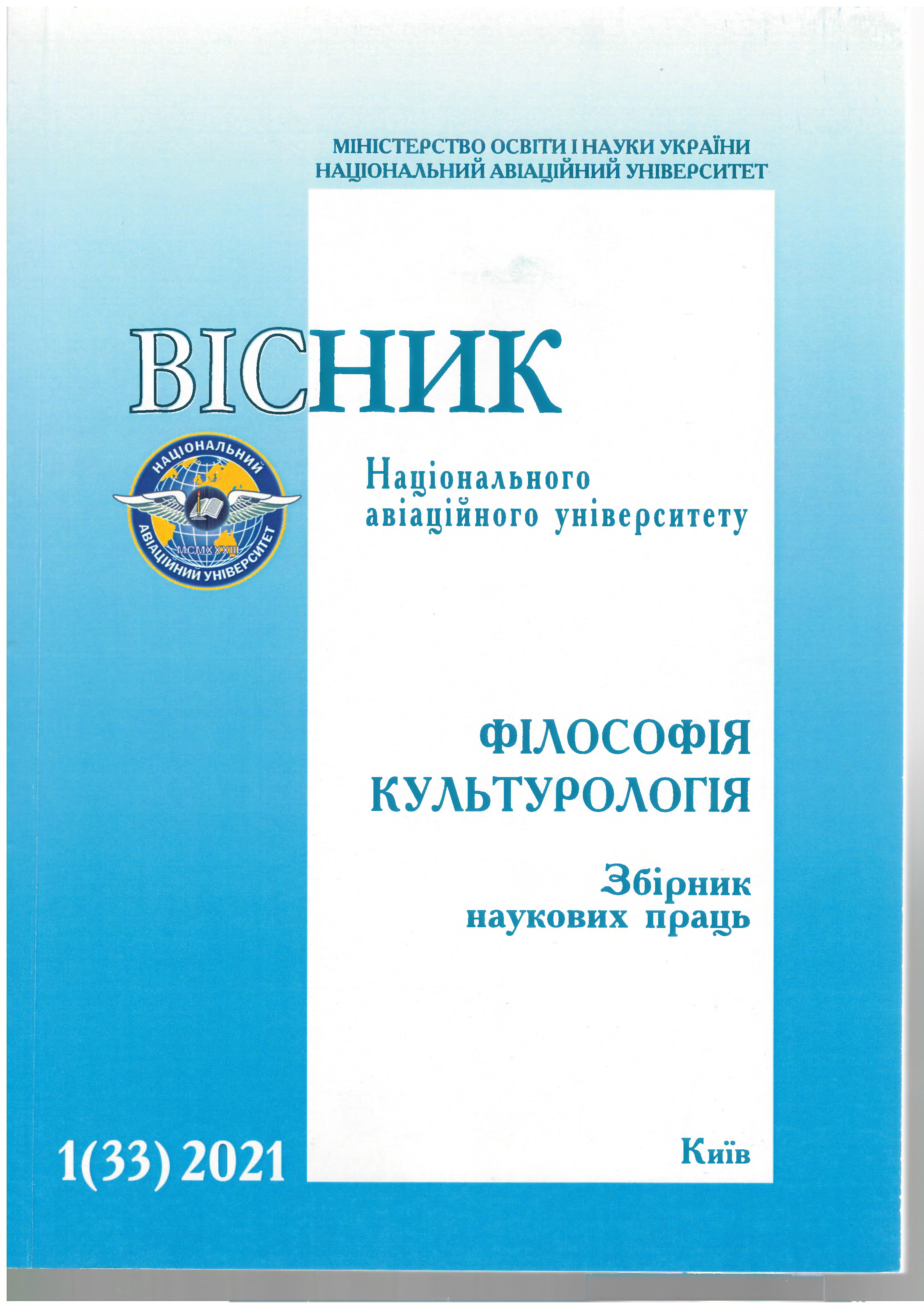CYBER-SOCIAL SOCIETY: THE NEWEST RHIZOME
DOI:
https://doi.org/10.18372/2412-2157.33.15641Keywords:
information society, socio-cultural state, virtual communities, neo-medieval, postmodern culture, offline person, rhizome, cybersocial societyAbstract
Introduction. Philosophical reflection on the world is essential as an attempt to identify markers of society's behavior in a reality that is increasingly being portrayed as a simulacrum of chaos. The theoretical basis of the article was sociological and cultural-philosophical studies of D. Bell, A. Buhl, M. Weinstein, M. Castells, A. Crocker, J.-F. Lyotard, M. Maffesoli, J. Nesbitt, M. Paetau, E. Toffler, and others. The aim and tasks are identifying the features of the social reality of modern society and their philosophical understanding in the paradigm of postmodern culture. Research methods area set of philosophical and general scientific approaches and methods: systematics, objectivity, convergence from the abstract to the concrete. The article uses the interdisciplinary synergetic methodology to understand the dynamics of self-organization in the network society. Research results. Lack of stable principles and norms, socio-cultural isolation, and historical relativity are the main characteristics of postmodern culture, which allows us to define the social reality as a kaleidoscope of events and a disordered system, which is a multifaceted set of loosely connected parts, fragments, and elements. And coherence and integrity are fundamentally rejected by this cultural paradigm because it is based on movement, change, and deformation. The information society has not been fully realized, which encourages the search for alternative models of explanation of modern social reality. The emphasis in the "new" information society is not on the growing role of knowledge but on the development of communication practices. All ideas of modern society as a virtual society are permeated by the idea of transferring basic social practices - communication, exchange, work, production - to the computer-generated alternative (virtual) space, or cyberspace. Today, social practices transferred to the virtual space acquire the status of real, not "parallel", similar to the real thing. The virtual world becomes the environment of "being" and the embodiment of simulacra. Discussion. Hungarian researchers B. Kolanyi, S. Molnar and L. Shekeli state that networks have become one of the most fundamental elements of human civilization, which absence makes it impossible to imagine modern society. They believe that traditional family, neighborly and friendly ties are gradually becoming less important than networking ones. Umberto Eco was one of the first to discover the features of the conditional Middle Ages in the "offline" space of society. M. Maffesoli describes the direction of social development as an ingress, a concept based only on the present because it lives in the moment. Соnclusion. Structured in the way of horizontal interaction, social virtual, and "offline" networks become open to social engineering, social planning and forecasting on-line. Complementing self-organizational processes, these procedures reveal the transmission of the socio-cultural potential of global information networks into social reality and embody a virtual prototype of reality. Thus, there is an openness of postmodern (hyper industrial) society and its cultural determinants to the possible manipulation of both classical (socio-political) and the latest (information and network) methods.
References
Becker B., Paetau M. Virtualisierung des Sozialen. Die Informationsgesselschaft zwischen Fragmenterung und Globaliesie-rung. Frankfurt a. M., 1997.
Bühl A. Die virtuelle Gesellschaft: Ökonomie, Politik und Kultur im Zeichen des Cyberspace. Opladen, 1997.
Kollanyi B., Molnar Sz., Szekely L. Social Network sand Network Society. Budapest, Leonardo da Vinci, July 2007.– 29p.
Kroker A., Weinstein M. Data Trash. The Theory of the Virtual Class. Montreal, 1994.
Lipovetsky G. L'ere du vide. Essais sur individualisme contemporain / Gilles Lipovetsky. –Paris: Editions Gallimard. 1983. –328 р.
Аттали Ж. На пороге нового тысячелетия. - М.: Междунар. отношения, 1993. – 70 с.
Бауман З. Глобалізація. Наслідки для людини і суспільства / Пер. з англ. І. Андрущенка; за наук. ред. М. Винницького.- К.: Вид. дім «Києво-Могилянська академія», 2008.- 109 с.
Бодрийяр Ж. Символический обмен и смерть / Жан Бодрийяр; пер. с фр. С. H. Зенкин. – М.: «Добросвет», 2000. –387 с.
Делез Ж., Гваттари Ф. Ризома // Философия эпохи постмодерна: сб. переводов и рефератов. – Минск, 1996. – С. 6–31.
Жиль Делёз Ницше и философия – М.: Ад Маргинем, 2003. – 392 с.
Иванов Д. В. Общество как виртуальная реальность // Информационное общество: сб. М.: АСТ, 2004. С. 355-428., с. 364-367
Клешня Г.М. Нові пріоритети сталого розвитку в умовах пандемії COVID-19: соціально-філософський аспект // Вісник Національного Авіаційного університету. Серія: Філософія. Культурологія. – 2020. - №. 1. – С. 35-40.
Ланье Дж. Вы не гаджет. Манифест. М.: Астрель; CORPUS, 2011. 320 с.
Лиотар Ж.-Ф. Состояние постмодерна / Пер. с фр. Н. А. Шматко. – М.: Институт экспериментальной социологии; СПб.: Алетейя, 1988. – С. 10; Философия культуры…- С. 356.
Литовченко І. В. Віртуалізація соціальної реальності та соціальних інститутів в умовах розвитку інформаційного суспільства //Вісник Національного Авіаційного Університету. Серія: Філософія. Культурологія. – 2020. - №. 1. – С. 64-66.
Маффесолі М. Відкрита лекція в Інституті соціології НАН України “Трансформація політич-ного в етичне: моральні цінності постмодерного простору”, 30 травня 2017 р. URL: https://www.youtube.com/watch?v=fxEu2FjiRs
Назарчук А.В. Сетевое общество и его философское осмысление // Вопросы философии. – 2008.– No7.– С.61–75.
Эко У. Средние века уже начались / Умберто Эко // Иностранная литература. – 1994. – № 4. – С. 258-267.

